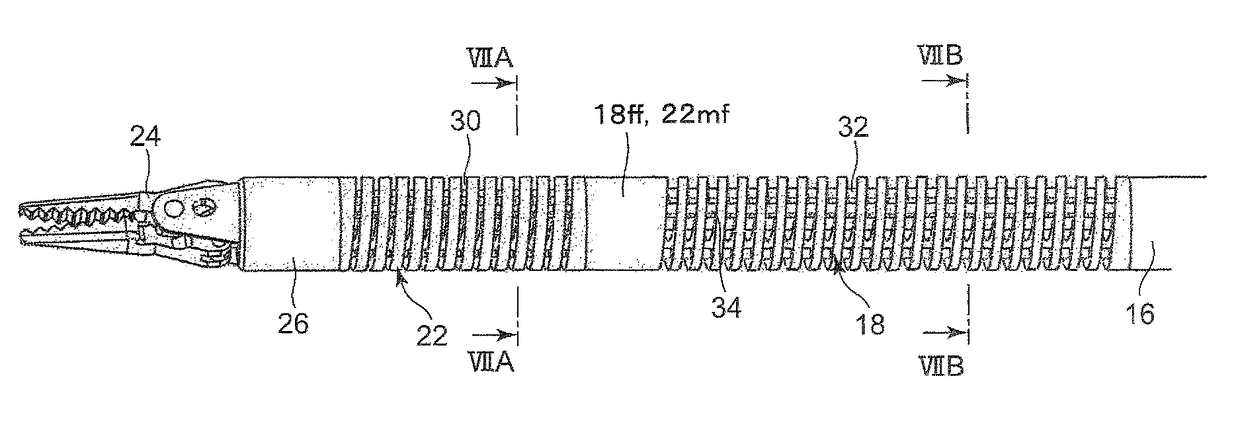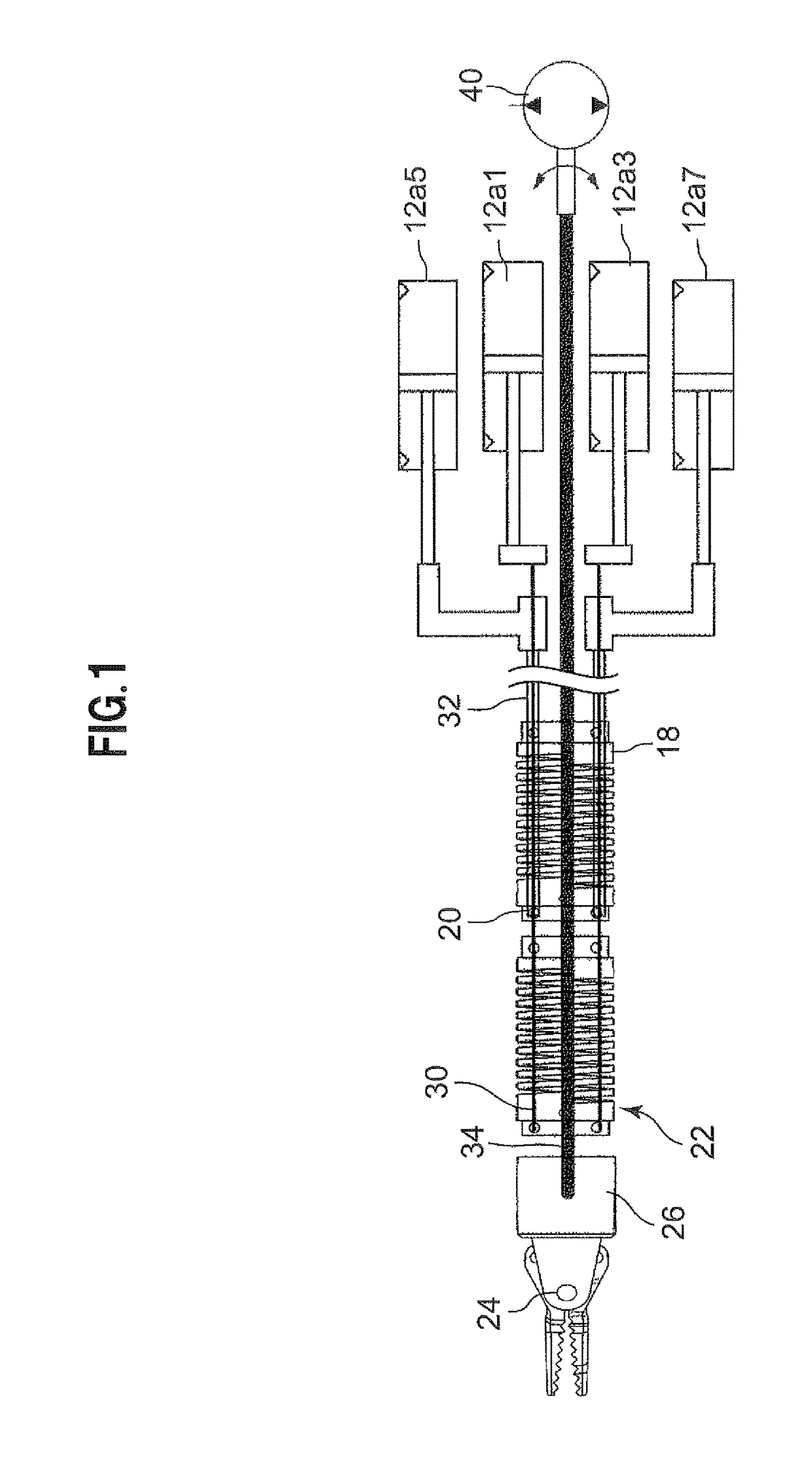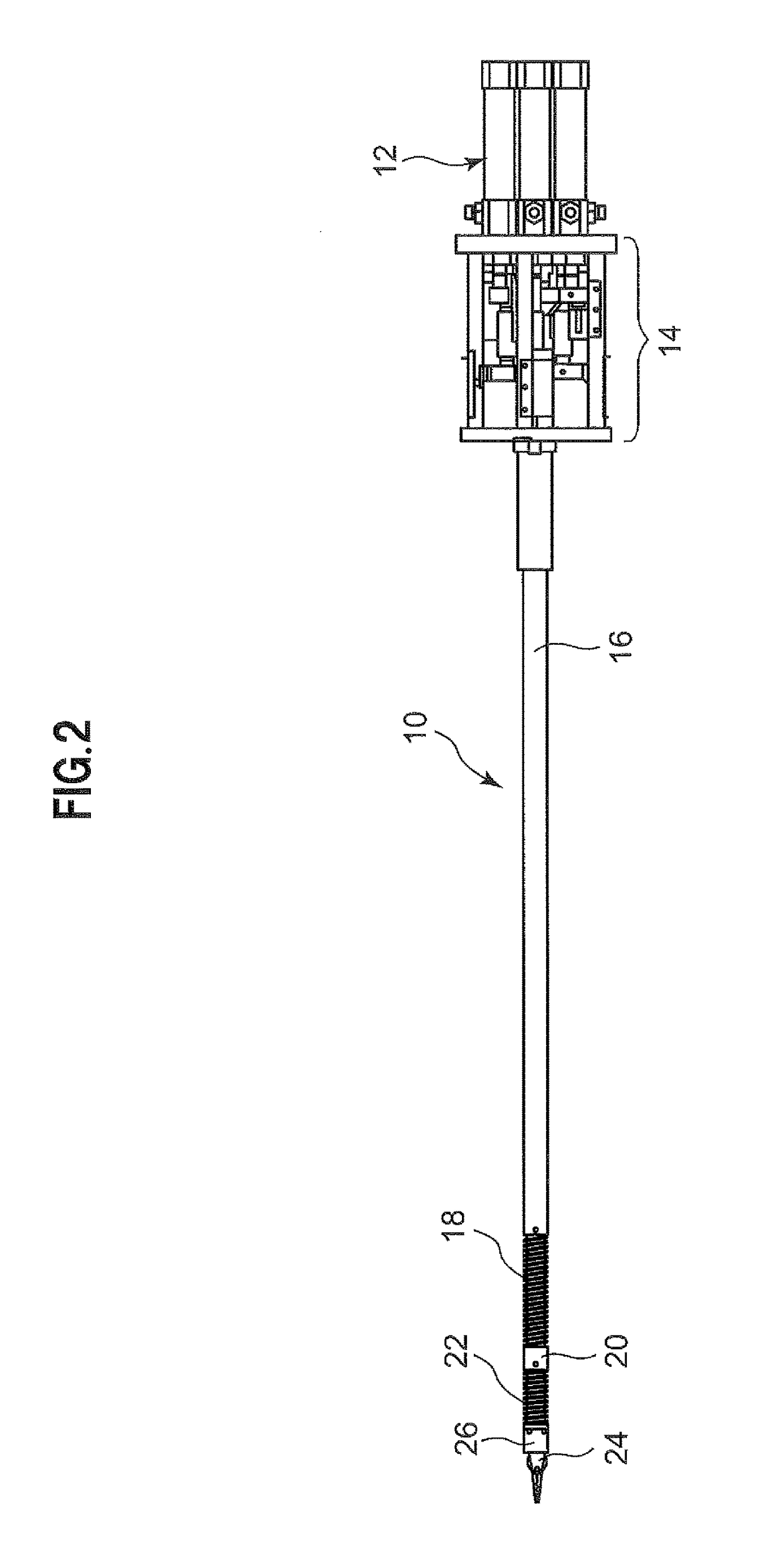Forceps manipulator and forceps system comprising forceps manipulator
a technology of forceps and manipulators, which is applied in the field of forceps manipulators and forceps system comprising forceps manipulators, can solve the problems of buckling or breaking, joint itself becoming longer, and affecting the work efficiency of the forceps, so as to achieve simple flexible bending mechanism, reduce size, and improve work efficiency.
- Summary
- Abstract
- Description
- Claims
- Application Information
AI Technical Summary
Benefits of technology
Problems solved by technology
Method used
Image
Examples
Embodiment Construction
[0029]Hereinafter, embodiments of the invention will be described. It should be noted that in the text of the present specification, an alphabetical character having a hat symbol will be referred to as “(alphabetical character) hat” and a character having an over-dot will be referred to as “(alphabetical character) over-dot.”
[0030]FIG. 2 shows an exterior view of a forceps manipulator used in an embodiment of a forceps system comprising the forceps manipulator according to the present invention.
[0031]In FIG. 2, a forceps manipulator 10 is configured to include, as main components: a joint driving unit 12 composed of eight air cylinders 12a1 to 12a8; a connector unit 14 that connects respective piston rods of the joint driving unit 12 with a plurality of wires and tubes to be described later; a gripping unit 24 that is configured to include a forceps; a rotating joint unit 26 that is connected to a base end of the gripping unit 24; a second joint 22 that is connected via a ball beari...
PUM
 Login to View More
Login to View More Abstract
Description
Claims
Application Information
 Login to View More
Login to View More - R&D
- Intellectual Property
- Life Sciences
- Materials
- Tech Scout
- Unparalleled Data Quality
- Higher Quality Content
- 60% Fewer Hallucinations
Browse by: Latest US Patents, China's latest patents, Technical Efficacy Thesaurus, Application Domain, Technology Topic, Popular Technical Reports.
© 2025 PatSnap. All rights reserved.Legal|Privacy policy|Modern Slavery Act Transparency Statement|Sitemap|About US| Contact US: help@patsnap.com



